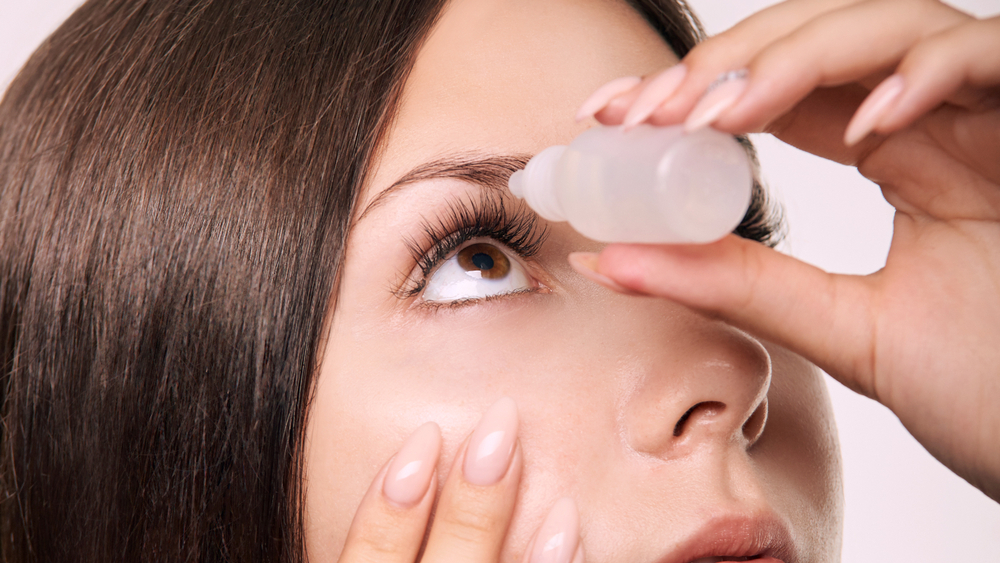
Living in Houston, Texas, has its perks—great food, a vibrant culture, and plenty of outdoor activities. But if you suffer from dry eyes, you’ve probably noticed that the climate doesn’t always do your eyes any favors. Between the heat, air conditioning, and allergens, dry eye symptoms are common among Houstonians. And if you’re dealing with burning, redness, or irritation, you may have already tried artificial tears for relief.
Why Is Dry Eye So Common?
Dry eye syndrome is incredibly common in Houston due to a mix of environmental and lifestyle factors. Our city’s weather fluctuates between high humidity and strong air conditioning indoors, which can lead to tear film instability. The combination of wind, pollution, and allergens can also contribute to eye irritation.
One of the leading causes of dry eye is meibomian gland dysfunction (MGD)—a condition where the glands along the eyelid don’t produce enough oil to keep tears from evaporating too quickly. MGD is especially prevalent in warm climates like Houston’s, where heat and pollution can contribute to gland blockage. If your dry eye symptoms feel persistent despite using over-the-counter drops, MGD could be the culprit.
What Are Low Viscosity Artificial Tears?
Low viscosity artificial tears are thinner and feel more like natural tears. They provide quick relief and don’t leave behind any noticeable residue, making them a convenient option for mild or occasional dry eye. These drops are best suited for individuals who experience occasional dryness, those who prefer not to have blurred vision after applying eye drops, and contact lens wearers, as some formulas are specifically designed to be compatible with lenses.
The main downside of low viscosity artificial tears is that they evaporate quickly. Because they don’t provide long-lasting hydration, you may need to reapply them frequently throughout the day to maintain comfort.
What Are High Viscosity Artificial Tears?
High viscosity artificial tears are thicker and provide longer-lasting relief by coating the eye’s surface. They are an excellent option for people who experience persistent dryness throughout the day or wake up with irritated eyes. These drops are particularly beneficial for individuals with moderate to severe dry eye, those who need overnight moisture retention, and people with meibomian gland dysfunction (MGD), as they help lock in moisture and prevent rapid tear evaporation.
One drawback of high viscosity artificial tears is that they can cause temporary blurred vision. Because of this, they are often best used before bed or when you don’t need to focus on detailed tasks.
When to See a Doctor for Dry Eye Treatment
If you’re constantly reaching for eye drops but still struggling with discomfort, it may be time to see an eye doctor. Chronic dry eye, especially when caused by meibomian gland dysfunction (MGD), often requires more advanced treatments beyond over-the-counter solutions.
At ALPHA EYEcare ASSOCIATES, PLLC, we offer a range of treatments to address the root causes of dry eye. Prescription eye drops can help improve tear production, providing longer-lasting relief. For those with MGD, in-office treatments can unclog oil glands, restoring the natural balance of the tear film.
In some cases, punctal plugs may be recommended to help keep tears from draining too quickly, allowing your eyes to stay hydrated for longer periods. We also provide nutritional recommendations, including omega-3 supplements, which can support better tear quality and overall eye health.
Finding the Right Solution for Your Dry Eyes
Choosing the right artificial tears depends on the severity of your dry eye symptoms. If you only experience occasional dryness, low viscosity drops may be enough. But if your eyes constantly feel dry, irritated, or fatigued, high viscosity drops (especially at night) may provide longer-lasting relief.
If artificial tears are falling short, schedule a consultation with ALPHA EYEcare ASSOCIATES, PLLC to get a personalized dry eye treatment plan. Visit our office in Houston, Texas, or call (713) 721-9000 to book an appointment today.













